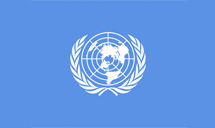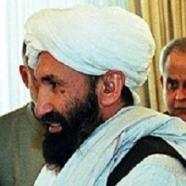Overview
Mullah Mohammad Hassan Akhund is a U.N.-designated founding member of the Taliban.“Security Council 1988 Committee Amends 105 Entries on Its Sanctions List,” United Nations, November 29, 2011, https://www.un.org/press/en/2011/sc10465.doc.htm; Douglas Schorzman, “Who Are the Taliban’s New Government Leaders? Here’s What We Know,” New York Times, September 7, 2021, https://www.nytimes.com/article/taliban-leaders-afghanistan.html?action=click&module=RelatedLinks&pgtype=Article. On September 7, 2021, Akhund was named the prime minister of the Taliban government.Douglas Schorzman, “Who Are the Taliban’s New Government Leaders? Here’s What We Know,” New York Times, September 7, 2021, https://www.nytimes.com/article/taliban-leaders-afghanistan.html?action=click&module=RelatedLinks&pgtype=Article. Akhund has primarily been a religious figure rather than a political or military leader and is seen as a compromise between more radical and moderate members of the Taliban.Eloise Barry, “Mohammad Hassan Akhund Is to Lead Afghanistan's Government. Here's What to Know about the Taliban's New Prime Minister,” Time, September 9, 2021, https://time.com/6096377/mullah-akhund-taliban-prime-minister/. On May 17, 2023, Akhund temporarily stepped down from office due to illness. His duties as acting prime minister were transferred to the U.N. designated Abdul Kabir Mohammad Jan (a.k.a. Abdul Kabir), the current deputy prime minister for political affairs.Ayaz Gul, “UN-Blacklisted Taliban Leader Becomes Acting Afghan Prime Minister,” Voice of America, May 17, 2023, https://www.voanews.com/a/un-blacklisted-taliban-leader-becomes-acting-afghan-prime-minister-/7097476.html.
Akhund was a close associate and political advisor to Mullah Mohammed Omar, the founder of the Taliban and the movement’s first supreme leader.“Key players in the Taliban's new government,” France 24, September 7, 2021, https://www.france24.com/en/live-news/20210907-key-players-in-the-taliban-s-new-government. Unlike other Taliban leaders, Akhund was not a part of the mujahadeen that fought against Soviet forces in the Soviet-Afghan war of the 1980s. Instead, Akhund took on a role that primarily provided religious guidance to Taliban leaders, often espousing the denial of civil rights and liberties for ethnic and religious minorities. He also encouraged the banning of women’s education, gender segregation, and strict religious dress that was heavily enforced by the Taliban in the 1990s.Ali A. Olomi, “Who is Mullah Hasan Akhund? What does the Taliban’s choice of interim prime minister mean for Afghanistan?,” The Conversation, September 7, 2021, https://theconversation.com/who-is-mullah-hasan-akhund-what-does-the-talibans-choice-of-interim-prime-minister-mean-for-afghanistan-167514.
From 1996 to 2001, Akhund allegedly served a variety of roles in the Taliban regime, including first deputy of the Council of Ministers, foreign minister, and governor of Kandahar. According to media reports, Akhund was a hot-tempered foreign minister, and in March 1998, he allegedly struck a U.N. staffer with a teapot during a diplomatic meeting. The United Nations subsequently withdrew its staff from Kandahar, and suspended humanitarian activities in the south of Afghanistan, leading the Taliban to depose Akhund from his role.Eloise Barry, “Mohammad Hassan Akhund Is to Lead Afghanistan's Government. Here's What to Know about the Taliban's New Prime Minister,” Time, September 9, 2021, https://time.com/6096377/mullah-akhund-taliban-prime-minister/.
For the next two decades after the Taliban’s fall from power in 2001, Akhund maintained a low-profile, choosing to help coordinate and run the Taliban’s leadership council in Quetta, Pakistan.Douglas Schorzman, “Who Are the Taliban’s New Government Leaders? Here’s What We Know,” New York Times, September 7, 2021, https://www.nytimes.com/article/taliban-leaders-afghanistan.html?action=click&module=RelatedLinks&pgtype=Article. While in Pakistan, Akhund provided spiritual and religious guidance to the Taliban, offering ideological justification for the Taliban’s insurgency against the U.S. and the western backed government in Afghanistan.Ali A. Olomi, “Who is Mullah Hasan Akhund? What does the Taliban’s choice of interim prime minister mean for Afghanistan?,” The Conversation, September 7, 2021, https://theconversation.com/who-is-mullah-hasan-akhund-what-does-the-talibans-choice-of-interim-prime-minister-mean-for-afghanistan-167514. Given Akhund’s multiple roles within the Taliban’s regime, the United Nations Security Council sanctioned Akhund on January 25, 2001.“MOHAMMAD HASSAN AKHUND,” United Nations Security Council, May 13, 2011, https://www.un.org/securitycouncil/sanctions/1988/materials/summaries/individual/mohammad-hassan-akhund.
In 2001, while serving in the Taliban’s shura council, Akhund approved the destruction of the Buddhas of Bamiyan—a UNESCO world heritage site. According to media sources, instead of providing Afghanistan with necessary humanitarian aid, the United Nations had allocated money to preserve the statues—a move that greatly incensed the shura council.Ali A. Olomi, “Who is Mullah Hasan Akhund? What does the Taliban’s choice of interim prime minister mean for Afghanistan?,” The Conversation, September 7, 2021, https://theconversation.com/who-is-mullah-hasan-akhund-what-does-the-talibans-choice-of-interim-prime-minister-mean-for-afghanistan-167514.
On August 6, 2021, the Taliban began an offensive against major Afghan cities with the seizure of Zaranj, capital of Nimruz province.Susannah George and Ezzatullah Mehrdad, “Taliban fighters overrun an Afghan provincial capital for the first time since withdrawal of foreign forces,” Washington Post, August 6, 2021, https://www.washingtonpost.com/world/2021/08/06/afghanistan-taliban-nimruz/. By August 13, the Taliban controlled 17 of Afghanistan’s 34 provincial capitals and more than two-thirds of the country.Rahim Faiez, and Joseph Krauss, “Taliban sweep across Afghanistan’s south; take 4 more cities,” Associated Press, August 13, 2021, https://apnews.com/article/middle-east-taliban-c6c8d4a41c554f36031a8131538d1402. On August 15, Afghan President Ashraf Ghani fled Afghanistan and thousands of Afghans poured into Kabul’s airport as Taliban fighters entered the city. By August 16, the Taliban laid siege to the presidential palace and took complete control of Kabul, after which the Taliban declared the war in Afghanistan had ended.“Taliban declares ‘war is over’ as president and diplomats flee Kabul,” Reuters, August 15, 2021, https://www.reuters.com/world/asia-pacific/talibans-rapid-advance-across-afghanistan-2021-08-10/. The Taliban has claimed that it would take on a more “moderate” approach in their ruling of the country, and that women are allowed to have roles in public life in observance of “Islamic law.”“Factbox: Taliban seek to present a moderate face as they take control in Afghanistan,” Reuters, August 15, 2021, https://www.reuters.com/world/asia-pacific/taliban-seek-present-moderate-face-they-take-control-afghanistan-2021-08-15/.
On September 7, 2021, the Taliban announced the official appointments within their caretaker government. Akhund was named prime minister, where he will look after the day to day of governing. The government is exclusively male, with many positions filled with veterans from their hardline movement in the early nineties.Matthieu Aikins and Jim Huylebroek, “Taliban Appoint Stalwarts to Top Government Posts,” New York Times, September 7, 2021, https://www.nytimes.com/2021/09/07/world/asia/taliban-women-protest-kabul-afghanistan.html; Kathy Gannon, “Taliban form all-male Afghan government of old guard members,” Associated Press, September 8, 2021, https://apnews.com/article/middle-east-pakistan-afghanistan-arrests-islamabad-d50b1b490d27d32eb20cc11b77c12c87.
On September 12, 2021, Akhund met with Qatari Foreign Minister Sheikh Mohammed bin Abdulrahman al-Thani in Kabul. Al-Thani allegedly called upon the country’s new government to “involve all Afghan parties in national reconciliation.” Additionally, al-Thani spoke with Akhund to discuss “concerted efforts to combat terrorist organizations.”“Taliban hold talks with Qatar foreign minister. Here’s what they discussed” Hindustan Times, September 13, 2021, https://www.hindustantimes.com/world-news/taliban-hold-talks-with-qatar-foreign-minister-here-s-what-they-discussed-101631499643674.html.
Akuhund was scarcely in the spotlight for the next few years. However, on May 17, 2023, Taliban spokesman, Zabihullah Mujahid, announced that Abdul Kabir, the U.N. designated and current deputy prime minister for political affairs, will temporarily fulfill the duties of prime minister of the Taliban government. Akhund is reportedly unwell and is undergoing treatment. In 2001, Kabir served as the acting prime minister for the Taliban government right before the collapse of the group’s first reign. During his tenure with the Taliban, Kabir has plotted deadly bombings, facilitated drug trafficking, and even took part in the peace negotiations between the U.S. and the Taliban in 2020.Ayaz Gul, “UN-Blacklisted Taliban Leader Becomes Acting Afghan Prime Minister,” Voice of America, May 17, 2023, https://www.voanews.com/a/un-blacklisted-taliban-leader-becomes-acting-afghan-prime-minister-/7097476.html.
Associated Groups
- Extremist entity
- Taliban
- Read Threat Report
- Type(s) of Organization:
- Insurgent, regional, terrorist, transnational, violent
- Ideologies and Affiliations:
- Deobandi, Islamist, jihadist, Pashtun, Salafi, Sunni, Wahhabi
- Position(s):
- Prime Minister of the Taliban government (previous)
The Taliban seized power in Afghanistan in August 2021 after previously leading a violent insurgency in Afghanistan and Pakistan. The group is closely affiliated with al-Qaeda.
History
United Nations

The U.N. Security Council sanctioned Mohammad Hassan Akhund on January 25, 2001, for his leadership role in the Taliban.“Security Council 1988 Committee Amends 105 Entries on Its Sanctions List,” United Nations, November 29, 2011, https://www.un.org/press/en/2011/sc10465.doc.htm.
